Strategic Partners: Private Equity Firms Power Franchise Growth

Before a private equity firm decides to purchase a franchise brand, there’s a prolonged engagement period where both sides get to know each other and decide if their goals align. With hundreds of millions of dollars potentially at stake, it’s important to take the time to fully assess and evaluate the situation.
“We have a process,” says Aziz Hashim, founder and managing partner of NRD Capital, which has invested in franchise brands including Frisch’s Big Boy and Altitude Trampoline Parks, and in tech companies such as Qu and Harri. “It’s pretty involved because you have to understand what you’re buying. It’s not good form to buy something and then figure out you didn’t know what you were buying,” he says.
The due diligence phase preceding a deal involves finding out if the franchise’s executive team is 100% committed to dramatically growing the business over the next three to five years. PE firms are accountable to their investors, who expect returns. Part of what makes the franchise model attractive is its ability to grow in size and profitability relatively quickly.
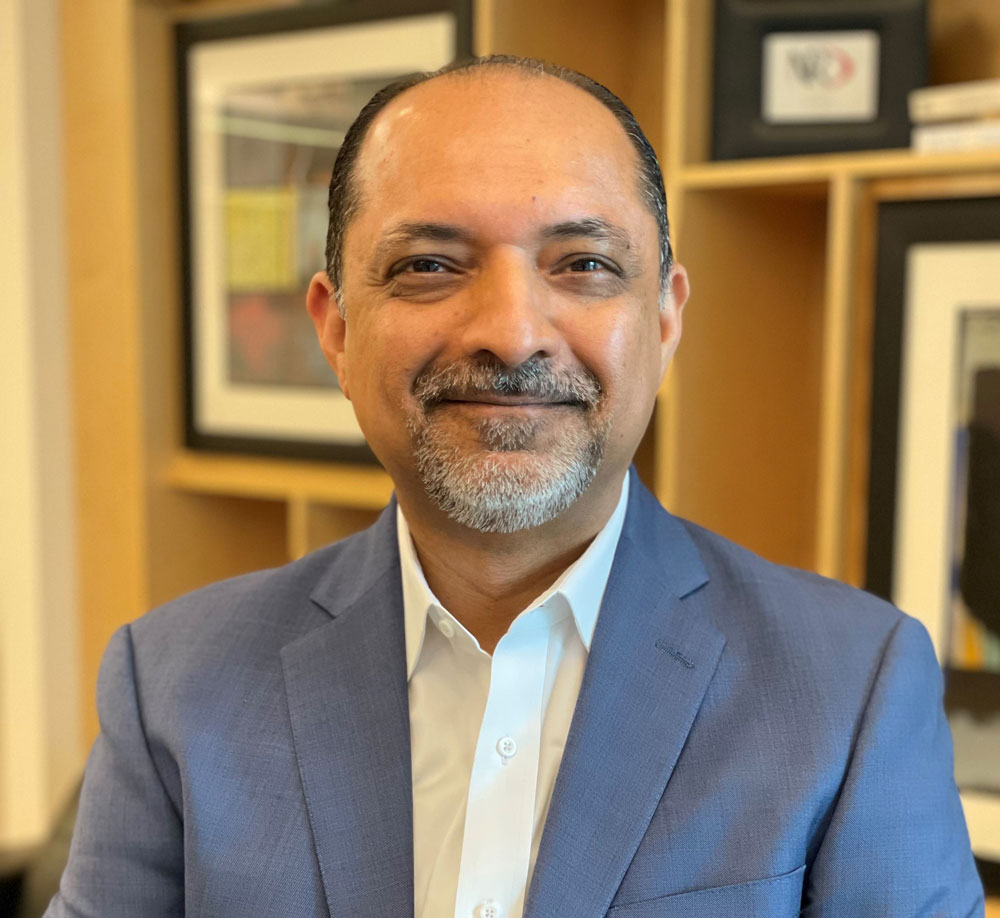
However, for a PE firm evaluating a potential match with a franchisor, it isn’t all about the executive team at corporate. Before PE firms decide to pull the trigger on a deal, it’s crucial for them to also spend quality time with franchisees—just as a franchisee candidate would.
“If you’re buying a franchise system,” Hashim says, “it makes sense that the franchisees should be interviewed. They should be asked if they’re happy. They should be asked if they’re making money. They should be asked if they plan to continue to grow within this franchise system. Those are natural questions to get to the bottom of to ensure that the franchisees are satisfied.”
It's a deal, now what?
If everything checks out and the parties come to an agreement, it’s time for everyone to buckle up and get to work. As strategic partners, PE firms provide direction, support, and capital that will affect how the franchisor’s management team handles day-to-day operations.
In the drive for growth, strong unit-level economics and profitability are key, says Josh Wall, chief growth officer at Unleashed Brands, which is owned by Seidler Equity Partners. “Each situation is going to be unique,” he says. “In many cases when PE is looking to make that strategic investment, it’s looking to help the management team install new processes and systems that can help serve the franchisees at a higher level. So those franchisees get greater support, become more streamlined, and more profitable.”
When partners at a private equity firm become interested in a franchisor brand or collection of brands, it’s because they see potential, says Chris Dull, CEO of Freddy’s Frozen Custard & Steakburgers. “PE came into the business because they had a strong belief in Freddy’s,” he says. “They came in to make it better.”
Dull has 15 years of experience working as a CEO for private equity. When Thompson Street Capital Partners was interested in buying Freddy’s, he was brought in as an advisor in the due diligence phase. “It turned out the founders were ready to step aside,” he says, “so I was brought in as CEO. That wasn’t the plan when I got involved.”
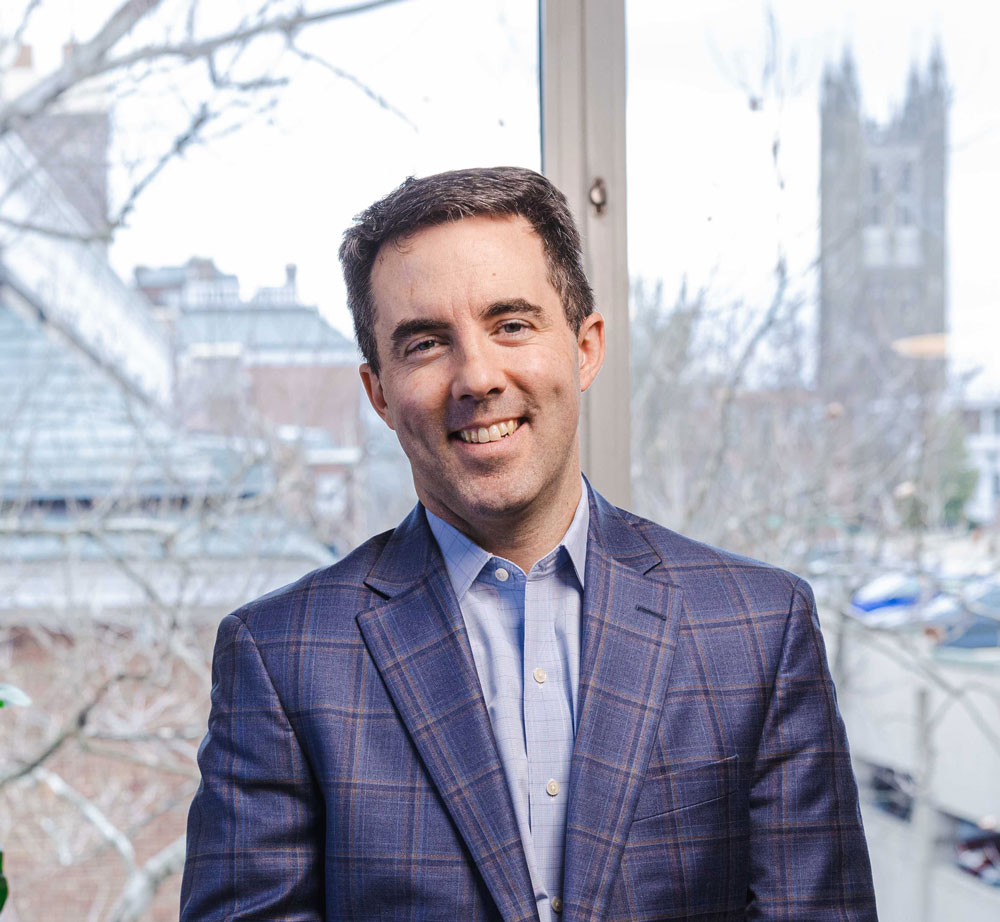
Adding expertise
Changes at the top aren’t always about replacing executives. In many cases, the path forward involves adding new positions on staffs that had been stretched in the past, says Douglas Kennealey, a managing partner with Princeton Equity Group. The PE firm’s investments focus heavily on service brands, including Stretch Zone, Five Star Bath Solutions, and Massage Envy.
“It can be a shakeup, but it’s often about supplementing,” Kennealey says. “A lot of times when we make an investment, there’s not a full C-suite. They might not have a CFO or a CMO. There’s usually a founder who is a CEO. More often than not, we are helping that original founder to build a bench.”
That’s been Michael Borreca’s experience. He’s a senior vice president and CFO of Empower Brands, which owns a variety of service brands, including Conserva Irrigation, Jan-Pro, and Wallaby Windows. In September 2021, Lynx Franchising acquired Outdoor Living Brands, creating Empower Brands, an umbrella company focused on the commercial and home services sector. Today Empower is a portfolio company of PE firm MidOcean Partners.
“As our business scales and becomes more complex,” Borreca says, “we have to bring in new talent—not just replacing, but actually creating new positions. We’ve invested in a new COO and a chief development officer who focuses on new franchise development. Those were new positions as we became more complex.”
The staff increases go deeper than the executive level. “Most of the investments have been at the next tier down,” Borreca says. “It’s about building out the support team and the support structure to scale. By building a more scalable platform for the future, we potentially attract more brands that want to join our family.”
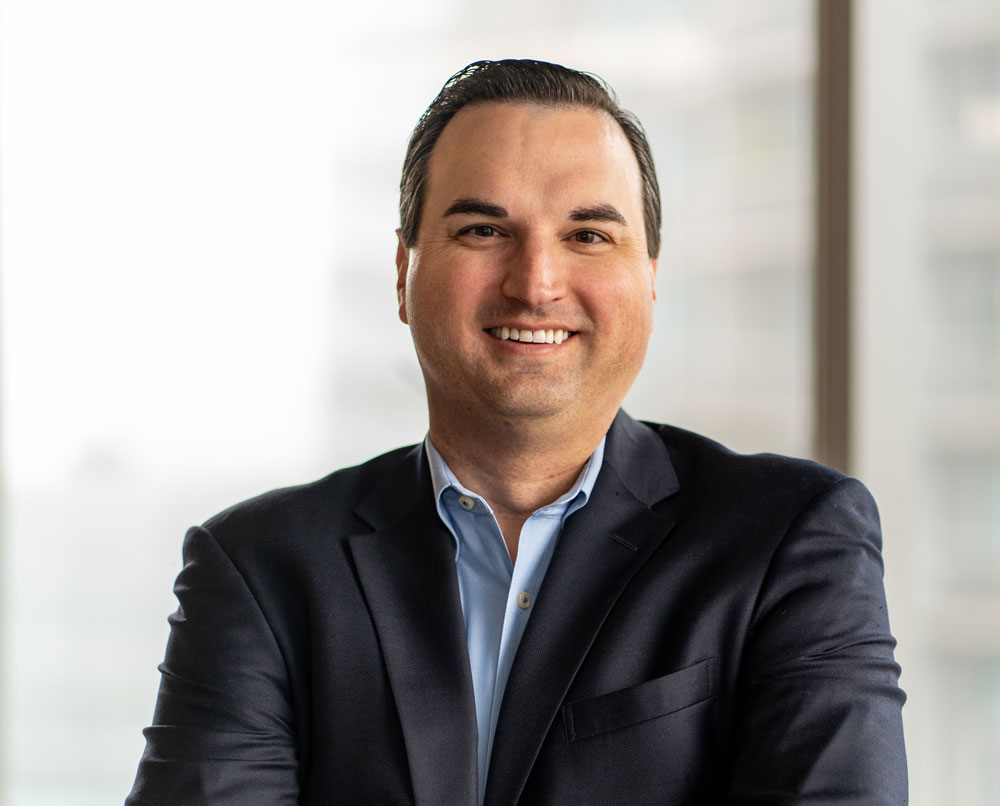
Resources at the ready
PE firms generally stay out of day-to-day operations, but they will offer strategic advice as needed. If Empower Brands faces an IT challenge, Borreca says, “MidOcean has a 30-year CIO on their team. It’s free of charge for us to tap into that knowledge base. Absolutely, we should take advantage of that expertise.”
Unleashed Brands has locations in 15 different countries with its largest concentration of international locations in China. Wall says the team at Seidler has provided strategic advice that has powered the company’s international growth. “They’re excited to share their experience,” he says. “But more than that, they want to align you with subject matter experts. If it happens to be in their office, fantastic. If it happens to be with a current or former portfolio company, fantastic. They’re coming in as a strategic resource to help us hone our vision.”
Hashim’s company, NRD Capital, invests in mid-sized brands in the U.S. and around the world. “We often find that when looking at a company, especially in the area we look at, the lower middle market, they don’t have the type of resources in house to figure out what technologies to adopt,” he says. “So that’s part of the value proposition that we provide.”
Hashim has four decades of experience in the franchise business. He’s been a franchisee, a franchisor, a supplier, a consultant, and now is managing partner of a PE firm. He and his team share their vast experience with franchisors and franchisees alike. “We can help them sort through the options, like a cheat sheet or CliffsNotes,” he says. “If you need a good loyalty program, you can spend the next six months interviewing every loyalty provider in America, or you can talk to these two or three that we have decades of experience with.”
Kennealey says the same is true at Princeton Equity Group. The right technology can help franchisees automate their processes and increase profits. “If you do bathroom remodels like Five Star Bath Solutions,” he says, “you go out to somebody’s house, and you have a tablet and walk around and say, ‘Okay, here’s how much it’s going to cost to redo your bathroom, and I can show you some renderings,’ that can help that franchisee in their daily existence.”
As the business rule says, “If you can’t measure it, you can’t manage it.” The franchisor needs the information, but so does the unit-level operator. Wall says that when Seidler purchased Unleashed Brands, the investment funded new technology for Premier Martial Arts, Snapology, Urban Air Adventure Park, and its other brands.
“In every case, we look to streamline our tech stack,” he says. “For each of our brands, it is about upgrading their technology. That’s going to be around the POS to the customer. It’s going to be around how we’re communicating with our customers and team members. We were able to make each one of our brands more efficient by placing them all on our proprietary tech stack, which we call Command Center.”
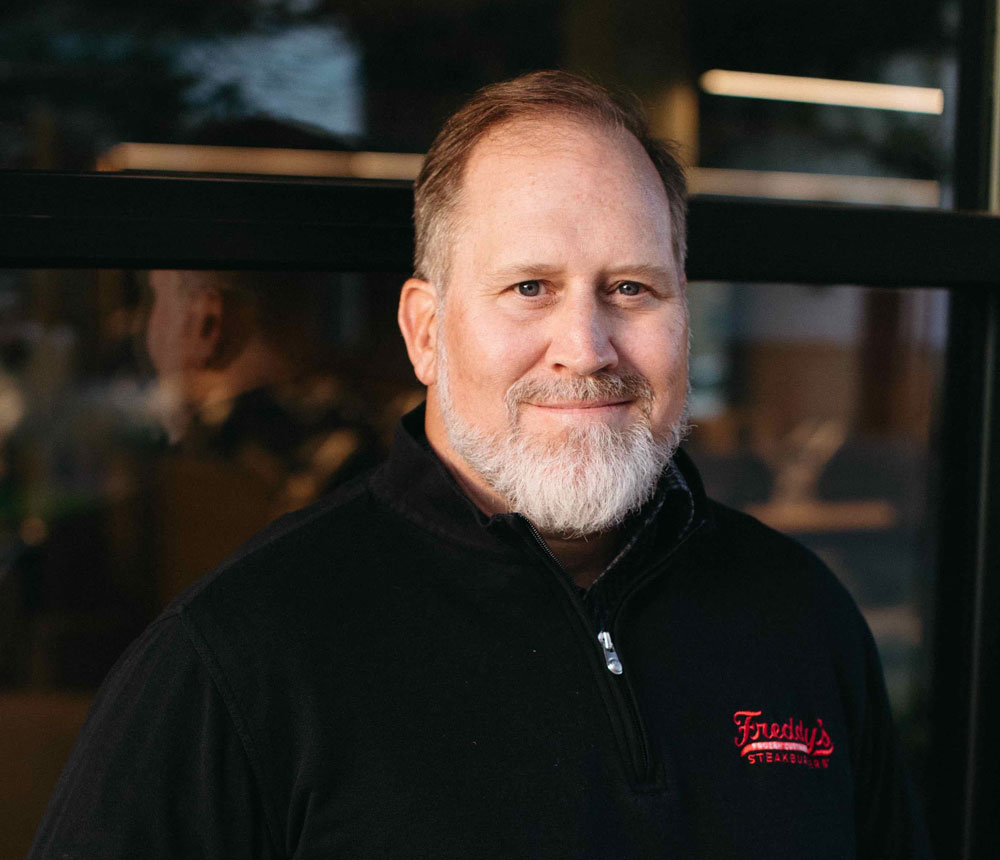
At Freddy’s, PE investment isn’t only about the infusion of cash, Dull says. It’s also about using investments in ways specifically designed to help the company grow. Some of that money was invested in a menu study that examined Freddy’s pricing structure. The company doesn’t tell franchises how to price items, it presents suggestions. Before the study, there were 70 different options. That was refined down to 13. “With the study, we were able to streamline the business for our franchisees,” he says.
In addition, says Dull, the purchase by Thompson Street in 2021 provided capital to build a prototype of a smaller, more efficient restaurant that reflects lessons learned during Covid. Before the pandemic, Freddy’s was focused on dine-in customers. The new prototype was designed to improve service for drive-thru customers and third-party deliveries. “We built a corporate-owned prototype and invested a couple of million dollars,” Dull says. “We’re working through the inefficiencies. It wasn’t right for us to put that on the franchisees without trying it out first.”
Freddy’s also used capital from the acquisition to provide pictogram screens at its restaurants’ making and bagging stations to ensure both accuracy and speed. “Freddy’s is a made-to-order burger,” Dull says. “Most made-to-order burgers are not terribly fast, but at Freddy’s, we are quite fast. Our average order time is around four-and-a-half minutes.”
Grow, baby, grow
Private equity investment in new technology is geared toward enhancing the customer experience, which has ripple effects throughout the entire system. If franchisees make more money, the franchisor makes more money, but it’s not a closed system. The business plan calls for growth in the form of new players willing to invest the blood, sweat, and tears necessary to open their own franchises, and in existing franchisees adding new units.
According to Wall at Unleashed Brands, each franchisor brings its own strengths to the relationship with its ownership team. “Private equity is often looking for brands that connect really well with consumers, brands that have a lot of heart behind them, have a compelling value proposition to customers, and certainly have strong unit-level economics. That gives private equity confidence that the brands can grow and scale,” he says.
Freddy’s, for example, has approximately 500 franchisee locations. The brand’s current goal is to reach 800, and steps have already been taken to get there. “We have 150 units in the pipeline,” Dull says. “If we do nothing in the next 24 months, we’re going to have 150 openings.”
When private equity firms want to invest in a franchisor, or even in a large multi-unit franchisee, they look for teams ready to expand. So, in addition to providing capital, PE partners set goals for growth and targets to hit. That’s part of the fun, according to Borreca at Empower Brands. “It is a really nice, balanced relationship when you find one of those growth-focused private equity firms that’s willing to invest capital and really wants to see a business they bought double in size in five years,” he says. “Let’s try to take what they’ve bought into and let’s double it. Where does it make sense to invest? Where does it make sense to grow and push?”
Franchising’s ability to expand relatively rapidly is one of the primary factors that attracts investors. Kennealey at Princeton Equity says the franchise business model is “highly scalable, meaning you can grow very quickly because it’s the franchisees who are all out there rowing in the same direction.” He says he admires the franchisees who invest in their businesses. “They’ve built their location, they’ve quit their job, and they’ve often signed a lease if it is a physical bricks-and-mortar location,” he says. “They’re in it to win it, which is great. We, as the franchisor, are in it as well. We have success when they have success.”
Of course, not every franchise brand hits its growth targets, and not every investment pays off for PE firms. That’s to be expected, Hashim says. “No firm or individual or investor in the world can bat 1.000,” he says. “Could someone have predicted the pandemic? So how are you going to bat 1.000 when there are so many issues beyond your control?”
According to Hashim, some deals go according to plan, others don’t, and others do better than expected. “What’s important is having a solid investment thesis and pursuing that thesis to the best of your ability,” he says. “If something doesn’t work, there are others. It’s an act of diversification. We’re not just going to do one deal. In the end, it’s like buying a mutual fund.”
Exit strategy, time to sell
Eventually, it comes time for a private equity firm to sell its assets. “We’re an investment firm,” Hashim says. “We’re using other people’s money, our investors’ money, so you have to have a plan about how they’re going to get their money back.” During the engagement period when PE firms are doing their due diligence with the companies they’re looking to purchase, thought should be given to how an eventual marriage will end. “An investment fund has to have an eye toward an exit strategy,” Hashim says.
A sale is inevitable, but timelines can be flexible, Kennealey says. “It’s not ‘Our way or the highway.’ It has to be right for the team. It has to be the right market conditions. The business has to be in a good spot. It has to be on solid footing. We have a lot of goals collectively with the management team that we want to achieve over several years. We need to look at where we are on the path toward achieving those goals. That will determine when there’s going to be an exit event of some kind.”
Because the exit is built into the relationship, the management team understands the end goal and takes steps along the way to make it happen. Borreca, who has gone through multiple private equity sales, says the exit strategy plays out in a step-by-step fashion.
“When the business is in a place that allows them to monetize their investment, we begin a process,” he says. “We involve third-party advisors and investment bankers to help us market ourselves to other, like-minded and growth-focused PE firms who are bigger. Hopefully, each time you go to market to sell, you’ve grown the business, so the equity checks get larger, and the types of investors have to get more sophisticated and larger.”
In the end, a private equity relationship is a finite thing. Ideally, the temporary partnership starts with capital investments and shared expertise and ends with the delivery of profits for investors, franchisors, and franchisees. And when one relationship ends, another begins. “You don’t slow down,” Borreca says. “We’re always growing and trying to look for the next best thing to bring to our franchisees.”
Share this Feature
Recommended Reading:
FRANCHISE TOPICS
- Multi-Unit Franchising
- Get Started in Franchising
- Franchise Growth
- Franchise Operations
- Open New Units
- Franchise Leadership
- Franchise Marketing
- Technology
- Franchise Law
- Franchise Awards
- Franchise Rankings
- Franchise Trends
- Franchise Development
- Featured Franchise Stories
FEATURED IN
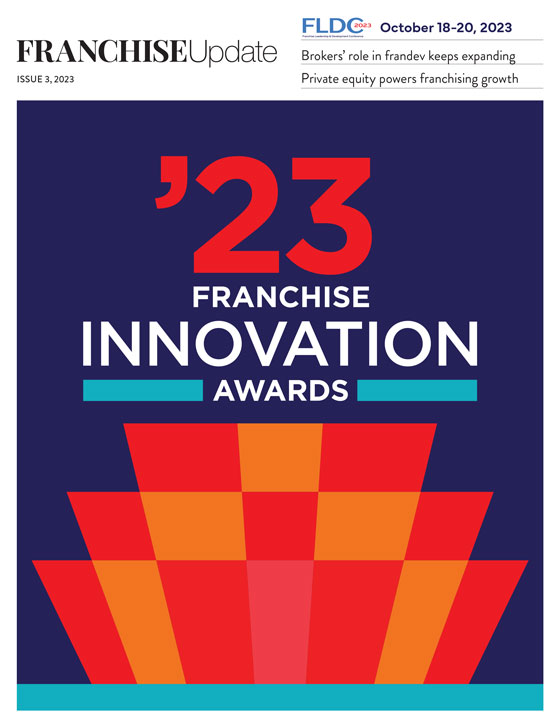
Franchise Update Magazine: Issue 3, 2023


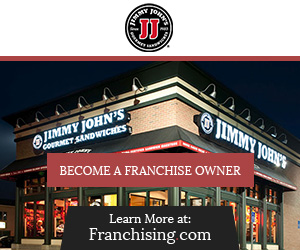





 The franchise listed above are not related to or endorsed by Franchise Update or Franchise Update Media Group. We are not engaged in, supporting, or endorsing any specific franchise, business opportunity, company or individual. No statement in this site is to be construed as a recommendation. We encourage prospective franchise buyers to perform extensive due diligence when considering a franchise opportunity.
The franchise listed above are not related to or endorsed by Franchise Update or Franchise Update Media Group. We are not engaged in, supporting, or endorsing any specific franchise, business opportunity, company or individual. No statement in this site is to be construed as a recommendation. We encourage prospective franchise buyers to perform extensive due diligence when considering a franchise opportunity.